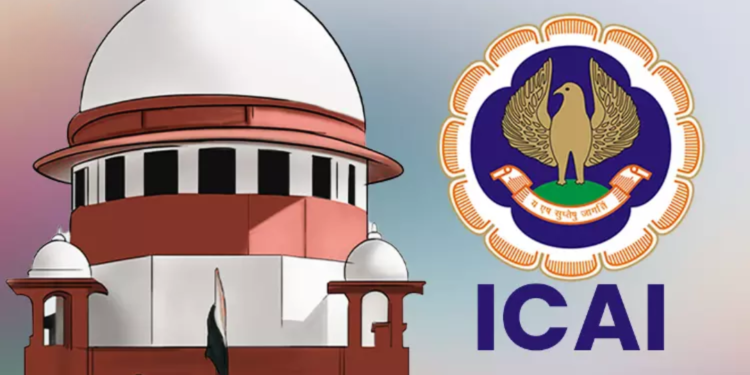On Friday, May 17, the Supreme Court upheld a rule issued by the Institute of Chartered Accountants of India (ICAI) that limits the number of tax audit assignments a Chartered Accountant can accept in a financial year to 60. This rule, outlined in paragraph 6.0 of Chapter VI of the Council Guidelines No. 1-CA(7)/02/2008 dated August 8, 2008, and its subsequent amendments, will take effect from April 1, 2024.
A bench comprising Justices BV Nagarathna and Augustine George Masih ruled that the guideline does not violate the fundamental right to practice a profession under Article 19(1)(g) of the Constitution. The Court also quashed disciplinary proceedings against members who had violated the clause, citing the doctrine of legal uncertainty.
“We quash the disciplinary proceedings initiated against the petitioners on the basis of the doctrine of legal uncertainty,” the bench declared, while also allowing the ICAI the liberty to increase the number of permissible audits in the future.
In the judgment, the bench acknowledged the ICAI’s role as a premier accounting body both domestically and globally, commending its efforts in maintaining high standards and ensuring the credibility of the Chartered Accountancy course and examinations. The Court emphasized the importance of enforcing these standards.
The bench summarized the judgment’s conclusions as follows:
Clause 6 of Chapter VI and the subsequent amendment are not violative of Article 19(1)(g) and constitute a reasonable restriction.
This clause will take effect from April 1, 2024, and all proceedings initiated under the previous guidelines are quashed.
The ICAI has the liberty to enhance the number of audits a Chartered Accountant can undertake.
Background
The compulsory tax audit regime was introduced in 1984 with the insertion of Section 44AB in the Income-tax Act, 1961, which took effect on April 1, 1985. This section required businesses or professionals exceeding a certain financial threshold to have their accounts audited by a Chartered Accountant. The rule aimed to counter tax evasion and fraudulent practices.
In 1988, the ICAI issued a notification under the Chartered Accountants Act, 1949, limiting the number of tax audit assignments per Chartered Accountant. This notification was later replaced by the 2008 guidelines.
Several writ petitions were filed challenging these guidelines, leading to conflicting judgments from various High Courts. In 2020, the Supreme Court consolidated these petitions to deliver a final ruling.
Summary of Arguments
Petitioners argued that the guideline infringed upon their fundamental right to practice their profession under Article 19(1)(g) and violated the right to equality under Article 14. They also questioned the ICAI’s authority to issue such a guideline. Senior Advocate Paramjit Singh Patwalia represented the petitioners, while Senior Advocate Arvind P. Datar represented the ICAI, providing a historical context for the compulsory audit requirement.

















